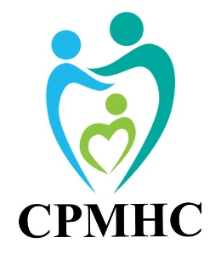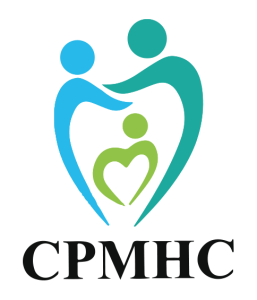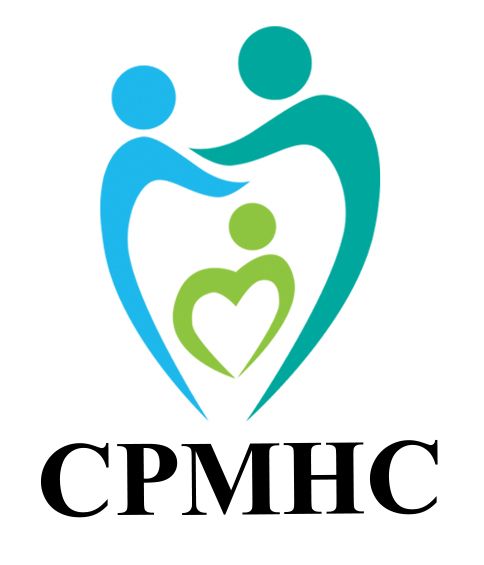Candice Thomas of Barrie, Ontario, is six months pregnant and worried about her mental health.
“I’m nervous my anxiety will just grow over the coming weeks,” Thomas told us. “I’ve had days that I don’t get out of bed and I cry for a few hours. Sometimes just putting my coat on to go outside seems too much for me. I have to be strong for my daughter, but as the days go by, it’s getting harder and harder. It keeps me up at night.”
Thomas suffered from debilitating postpartum depression after the birth of her daughter, Olivia, three and a half years ago. Already at high risk of developing a perinatal mental illness again, Thomas is concerned her fears over the pandemic as well as the need to physically distance from loved ones will most certainly bring it on again, and earlier.
“COVID-19 has changed the way I cope,” said Thomas. “Going out often to visit family and friends was part of my routine to decompress. Now, even though I can see them virtually, it’s not the same. The connection isn’t there.”
Thomas, a registered massage therapist, is being very open and honest about her struggles on Instagram.
https://www.instagram.com/stories/highlights/18052702702039409/
“Sometimes people will say you can do it or it’ll pass,” said Thomas. “It makes me feel like I’m in a world of my own, like they don’t see or feel what I’m feeling, like a car is running me over but they don’t see the car they just see me laying down and they want me to just get up. I think being pregnant is hard enough and then adding an unprecedented pandemic to it just makes it seem that much harder.”
What Perinatal Mental Health Was Like Before The Pandemic
Dr. Ryan Van Lieshout of McMaster University who is also Canada Research Chair in the Perinatal Programming of Mental Disorders told us that just one in ten women are getting access to evidence-based treatment for perinatal mental illness. He and his research team are working hard to find creative ways to increase access to talking therapies. They’ve trained public health nurses in the Niagara region in Ontario to deliver therapy to groups for postpartum depression and they’ve trained a group of women who have recovered from postpartum depression in Brantford to deliver cognitive behavioural therapy to women who are struggling.
Dr. Van Lieshout is currently recruiting women for free online treatment workshops.
“Screening programs through public health are detecting more women but the problem is that when they go to their family doctor, most of whom aren’t trained in talking therapies, they are prescribed medications that many don’t want to take, and are left wondering what to do next,” Dr. Van Lieshout told us. “Therapy rates can be expensive and even prohibitively so, and since there are such long wait lists in the publicly funded system, many women are left in the lurch.”
And this was without the added stress of COVID-19.
Once the pandemic hit, Dr. Van Lieshout became concerned that women were getting less access to screening and treatment and wrote an article published in The Conversation with advice for women on how to navigate this difficult time.
“One of the biggest things that many women are struggling with is concerns about their own health and the health of their families,” Dr. Van Lieshout told us. “They’re concerned that they may catch it or, that loved ones including their infant may catch it and that could produce untoward outcomes for them and their families. It’s also putting moms in really close quarters without much of a break, or time for rest. With the physical distancing recommendations, a lot of moms are feeling constrained not only in terms with what they can do and in terms of their breaks, but also their ability to use some of the coping strategies that might help them whether it’s exercise or going out and seeing friends or connecting or doing these other things.”
#NowMoreThanEver
Dr. Ariel Dalfen is the head of the Perinatal Mental Health Program at Mount Sinai Hospital in Toronto. She believes there will be an increase in perinatal mental illness due to the pandemic.
“I think we’ll see a lot more anxiety and depression because of increasing isolation,” Dr. Dalfen told us. “I do anticipate that the rates of perinatal mental illness will increase. I worry that post-traumatic stress disorder from labour and the hospital experience will increase as well.”
In addition to isolation, Dr. Dalfen says parents are also worried about the effects of COVID-19 on their babies and whether the virus can be transmitted through breast milk, not to mention the stress of not being able to have support people present at the birth.
“Living through a pandemic with all the unknowns and uncertainties is really impacting pregnant people who have higher interactions with the health care system,” said Dr. Dalfen. “People are worried they won’t get their needs met if something happens.”
That’s why a national perinatal mental health strategy is needed now more than ever and why the Canadian Perinatal Mental Health Collaborative (CPMHC) decided to make the hashtag #NowMoreThanEver its theme for this year’s World Maternal Mental Health Day campaign.
Throughout the month of April and leading up to World Maternal Mental Health Day, May 6th, the CPMHC has been sharing videos on its social media channels (Facebook, Instagram, Twitter) from moms, health care providers, elected officials and Canadian celebrities including:
Juno Rinaldi and Sarah McVie from CBC/Netflix series Workin’ Moms
Jessica Holmes, author and comedian (Royal Canadian Air Farce, Depression the Comedy)
Ann Douglas, parenting author and expert
MP Heather McPherson, Edmonton-Strathcona (NDP Deputy House Leader)
Ontario MPP Jill Dunlop, Simcoe North (Associate Minister of Children and Women’s Issues)a
Ontario MPP Bhutila Karpoche, Parkdale-High Park (Critic, Mental Health and Addictions)
CPMHC put the video call-out at the beginning of April asking the public to share why they believe maternal mental health matters #NowMoreThanEver and have been sharing one video each day of the campaign. On May 6th, the CPMHC will share a special video including clips for all the videos shared.
Here’s some of what participants have recorded themselves saying:
Juno Rinaldi from Workin’ Moms CBC/Netflix series:
“When I had my second son, I had postpartum depression and anxiety and it was incredibly challenging…now we’re all in these isolated places, new moms, moms-to-be, and I just want to express maternal mental health matters now more than ever…We’re in this together.” https://youtu.be/SFvscgoLBg8
Jessica Holmes, author and comedian (Royal Canadian Air Farce, Depression the Comedy):
“The last time I remember feeling this isolated is when I was a new mom and I first brought my babies home…I’m thinking of perinatal mental health and how important that is because when you add this isolation on top of the new responsibility, it’s a lot to bear so just wanted to give a shout out and remind new moms you are not alone. It probably feels like it but it does get better. And there’s always carbs to help us through it.” https://youtu.be/3k8BmP6Aor4
Ann Douglas, parenting author and expert:
“Parenting has always been tough and now it’s even tougher. Now more than ever we need a national perinatal mental health strategy and the investment to back that. It’s time.” https://youtu.be/60HfNUszLAs
Ontario MPP Bhutila Karpoche, Parkdale-High Park (Critic, Mental Health and Addictions):
“This year on World Maternal Mental Health Day I’m thinking of the many new moms and moms-to-be who are caring for or who are bringing new life into this world in the midst of pandemic. Now more than ever we need to shine a light on this issue. We need a strategy for maternal mental health. It cannot be overlooked.” https://youtu.be/YuhC-RtNcgI
MP Heather McPherson, Edmonton-Strathcona (NDP Deputy House Leader):
“I’m the mom of two children so I know a little bit about how challenging, exhausting and frankly isolating new parenthood can be. Now more than ever, we need a national strategy for perinatal mental health care. I was proud to sponsor the petition calling on the government to implement universal testing and treatment for all moms and dads during the pregnancy and perinatal period.” https://youtu.be/K4v5nSRCqnQ
Ontario MPP Jill Dunlop Simcoe North (Associate Minister of Children and Women’s Issues):
“As a mother to three wonderful daughters, I know how important it is to have support from family and friends during the postpartum period. Right now, social distancing is critical in the fight against COVID-19 but this can be tremendously difficult for postpartum moms, dads and parents altogether. Your support means everything to new moms. During this period of isolation, even a check-in via phone or video chat can go a long way. Now more than ever, postpartum moms need your support. We will get through this together.” https://youtu.be/H9C_lVGimBY
A Silver Lining?
If there’s a silver lining in all of this, perhaps it’s the unfettered access to virtual care.
Prior to the pandemic, there was a movement towards providing more virtual care for Canadians, especially for patients in rural communities that can’t access specialized treatment in large urban centres.
But there were a number of obstacles to overcome, the main one being privacy.
When the pandemic struck however, though the issues around privacy didn’t vanish, the safety of patients became paramount and the move to virtual care happened virtually overnight.
In Ontario, during COVID-19, the government announced that it’s allowing physicians to use any kind of virtual care platform as well as telephone for people who don’t have access to the Internet or wifi.
Both of Canada’s leading hospital perinatal mental health programs have now gone 100 per cent virtual to accommodate their patients – Women’s College Hospital, and Mount Sinai Hospital.
“This is the time for virtual care to shine,” Dr. Dalfen told us. “More people are able to or willing to transition to virtual care than ever before which I think is a really good thing. Are there more care providers? That’s often the limiting factor. I wouldn’t say that is the case but I would say most care providers are better equipped and comfortable using different types of virtual care than they may have been before. That’s a silver lining.”
The Perinatal Mental Health Program provides assessment and treatment for women who are under the care of a Mount Sinai Hospital medical provider or who have delivered at Sinai within the past 12 months.
Even before COVID-19, Mount Sinai Hospital had a very active telemedicine program where they saw patients from across the province with a referral from a primary care provider.
“We have been doing virtual care since 2014, so we’re quite accustomed to seeing people remotely or virtually,” Dr. Dalfen told us. “Now we’re allowed to email pharmacies or we just call in prescriptions because a lot of our patients do need medication as well as therapy.”
Dr. Dalfen said clinicians are staying on top of the latest pandemic information.
“We’re all learning about the pandemic piece as we go,” said Dr. Dalfen. “A big part of the anxiety for patients is not knowing the facts so we have to stay on top of knowing what are the facts of transmission to the fetus, what are the facts on transmission in general to pregnant women and for women who are choosing to breastfeed. Having to learn a lot about the pandemic specifically for pregnant and postpartum women has been something we’ve had to do.”
More Research Needed
A memo sent to health policy makers on April 7th by leading Canadian health care and artificial intelligence experts from Women’s College Hospital and the University of Toronto notes that the pandemic has permanently changed care delivery. They are urging policymakers to set new standards that “shape the urgent control period and the post-COVID world” related to patient quality and safety.
More Research Needed
A memo sent to health policy makers on April 7th by leading Canadian health care and artificial intelligence experts from Women’s College Hospital and the University of Toronto notes that the pandemic has permanently changed care delivery. They are urging policymakers to set new standards that “shape the urgent control period and the post-COVID world” related to patient quality and safety.
Dr. Simone Vigod welcomes virtual care and urges that this is a really good opportunity to better understand what types of virtual care work best, and for which women. She is Chief of the Department of Psychiatry at Women’s College Hospital (WCH) and leads the Reproductive Life Stages Program (RLS). Like Mount Sinai, WCH was also running virtual care prior to the pandemic but have now gone 100 per cent virtual during the pandemic.
“This is an opportunity for us to reach women who live far away, and we can now do this by video,” Dr. Vigod told us. “Before the pandemic, some women would drive 100 to 200 km to Toronto to come for their care.”
The specialized program in the Department of Psychiatry at Women’s College Hospital provides assessment and short-term treatment for women experiencing new or recurrent mental health problems, including anxiety, depression, mania and psychosis during the reproductive life stages (such as menstrual cycle, pregnancy, postpartum and the menopausal transition).
Dr. Vigod thinks it’s a good thing that people are still able to get essential services through virtual care. She believes there’s still so much to learn.
“I think there’s some good in the move to virtual care because people are getting essential services,” said Dr Vigod. “But there’s still so much that we need to know about virtual care. Is it actually as good for me to deliver psychiatric care as it is in person? What about virtual groups? Can you get that same connection when you connect on a “zoom” meeting? When the pandemic has passed, we will need evidence about how well virtual care works, to decide what we should continue doing virtually and how well different types of virtual care work.”
Dr. Vigod and Dr. Dalfen are investigators on a North American research team called the Summit Trial which is studying, in part, whether telemedicine is as effective as in-person treatment.
Dr. Vigod said that the big question once things are back to ‘normal’ will be how to decide for whom virtual care is good enough or better and for whom maybe it isn’t.
“That’s the kind of stuff that I’m wrestling with in my head and I think it’s really interesting in this pandemic that we’re doing things we’ve never done before that normally may be hard to change or we would need more evidence for but we’re doing it now,” said Dr. Vigod. “The goal is making sure that as many people get better as quickly and safely as possible. I think virtual care is a huge tool to address some of the major challenges that we have in healthcare right now. I think it’s important that women know that we’re trying to be there for them.”



